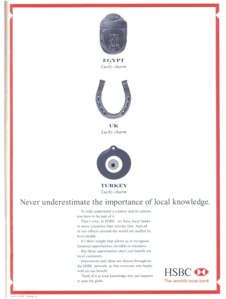Imagine your business in the assemblage of global brands; reputed for innovation, integrity and excellence. It’s become a great place to work; a case study for competitors and start-ups. Then imagine where your business is today – fighting for survival: constantly convincing clients to pay what your products/services are worth; commoditised by competing providers and fighting endless price wars.
You have tried every method in every strategy book to escape the commodity trap. You’ve even tried branding and design because you’ve heard it can differentiate your business. Perhaps it’s time to stop, take stock of your methods and revisit some brand fundamentals.
A basic feature to note about business is that it has two definitions. The first definition is descriptive and functional while the other is conceptual and brand based. The second definition is what separates branded businesses from commodities. It is known as conceptual definition. So powerful is conceptual definition that it drives product innovation, HR, culture and vision. It is the very essence of your business, its philosophical underpinning and corporate building block.
Here are some examples of conceptual definitions and their business implications:

Functional Definition
Travel, entertainment, financial services and consumer products group
Conceptual Definition
Rebellion against the establishment and provision of cheaper and qualitative alternatives
Business Implications
Drives product innovation – Introduction of quality air travel at cheaper rates
Drives marketing – Use of cheeky, risqué advertising
Drives culture: Informal ‘no-ties’ work environment
Sample Virgin Atlantic Advert

Functional Definition
Integrated financial services group
Conceptual Definition
The world’s local bank
Business Implications
Drives recruitment: The bank engages locals with deep knowledge of the market in each country it operates in
Drives marketing – Use of community icons and traditional lore

Functional Definition
Global discount supermarket chain
Conceptual Definition
We save people money so they can live better
Business Implications
Drives supplier negotiations – A focus on getting the best prices possible from suppliers so the cost savings are passed on to consumers
Drives HR policies – family members are allowed to work in the same store, as it’s believed this increases the standard of living for the whole family

Functional Definition
Consumer electronics manufacturer
Conceptual Definition
Poetry
Business Implication
Drives product design and customer segmentation – A poetic approach to manufacturing, raises the standard of design and appeals to consumers with an appreciation for abstract art
Sample Bang & Olufsen Product

Conceptual definition is the formula for brand differentiation. Once you uncover it, ensure you dimension your business and brand expressions with it in mind; from visual identity to the kind of staff you recruit to product design.
The consumer electronics behemoth, Sony suffered a sharp decline when the corporation deviated from its core conceptual definition which was: “Pioneering Spirit”. Competing brands like Samsung and Apple now dominate the product innovation space
[Lesson: A business without a unique conceptual focus will become commoditised and will be left with no other option but to compete on price]
The concept of your business is the reference point that allows you to move in a logical sequence as you develop your brand. It saves you from what is technically referred to as ‘failure cost’- the aggregate cost of not doing things right from inception. It enables you to use your resources judiciously to reinforce who your organisation is and what it stands for, thereby achieving message uniformity.
More importantly, it helps you develop a brand essence that’s tied to your heart and guts if you’re an entrepreneur; something you strongly believes in and that represents you. That way you are not trying to be what you are not. Instead you manifest who you are and project what you most care about. Your business becomes an “essential” offering that goes beyond the profit motive. It becomes something consumers buy into and are passionate about. (cf. Apple)
So, take the time to write down the concept of your business. What is it all about beyond making money? What wakes you up each morning beyond survival? What can you do for customers that will bring you immense joy? You will be doing yourself a world of good when you finally articulate your conceptual definition. So, start now.
Alder Strategy is a blog on brand strategy for businesses and brand practitioners
Copyright Alder Consulting 2013. All Rights Reserved.


